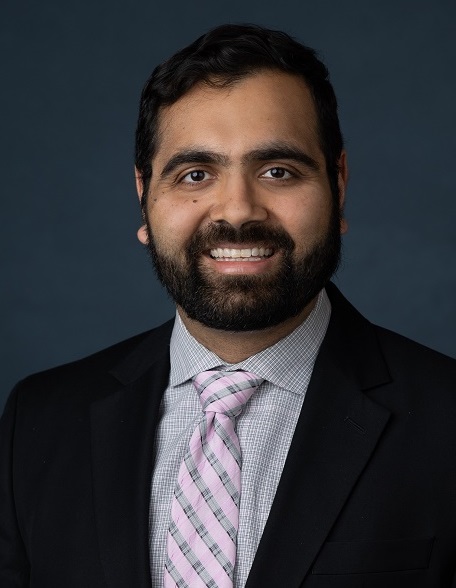
National Competition
Congratulations on winning your school’s Value Based Healthcare Competition! We are excited to have you join us for MCG’s National Value Based Healthcare Competition. The ultimate goal of the national competition is to implement your solution and see real-world outcomes that can be measured and published in the literature.
In the local competition, teams analyzed a patient case and came up with a solution to one of the many identified value deficits. The next steps of the Lean Six Sigma process improvement pathway include the implementation of the proposed solution to produce real world impact.
Participant Information:
- Throughout the national competition, teams will need to submit a PICO (population, intervention, comparison, outcome), an outlined implementation plan, and a video presentation lasting 10-15 minutes with a Powerpoint. Please refer to the deadlines below for when to submit these items.
- Winning teams are allowed to change team members as long as they are affiliated with the same university.
- Each team will be sent a care package and a submission link to submit all required materials.
Important deadlines (Hard deadlines TBD):
Competition Kickoff
- Mid-March 2023
Solution/PICO Submission
- April 2023
Implementation Plan Submission
- May 2023
Case Submission Deadline
- August 2023
Winners Announced
- September 2023
Award Information
- 1st Place
- $1,000
- Certificate of Achievement
- 2nd Place
- Certificate of Achievement
- 3rd Place
- Certificate of Achievement
- Winners and their presentations will be featured on our website!
IRB/Research FAQ:
Throughout the competition, the implementation process may produce measurable outcomes in a real-world healthcare setting that can potentially become published in literature. This process may include obtaining an IRB, please see below for more information.
When do I need to write an IRB?
- If your project involves collecting patient data to use as part of a study, an IRB is required first. If you are not planning on using any of the data for research, an IRB is not required.
Who can I contact for helpful information about writing an IRB?
- Reaching out to your local IRB board at your institution is the best way to get started on an IRB. IRBs may require forms that are specific to certain institutions in addition to forms that are standard across all IRB proposals. Your local IRB board will specify which forms are required for you to fill out. If you are an MCG student, you may reach out to IRB@augusta.edu to get help. Please also see the “Getting Started Submitting an IRB” document on this page.
- Please visit here for more information.
- Getting started submitting to the IRB
How long does an IRB take to get approved?
- It depends on what your project entails. Studies that are minimal risk will get approved quicker than studies that involve any sort of risk to patients or other subjects. The timeframe for approval can vary from a couple months to a year. While approval for minimal risk studies may be granted in a couple weeks to months, please expect the timeframe to be closer to months due to revisions that are often required. It is advised to start writing and submitting the IRB as early as possible.
What kinds of things are required when writing an IRB?
- This depends on the specific project you are writing an IRB for. Generally, you will be required to list out the protocol, any interventions, and motivation for conducting the study. Consent forms (including HIPPA approval/waivers) and forms that describe how you will collect and store data will be required as well. Additionally, you must also get the project electronically signed by an advisor, the department head, a sponsor (if you require one), and the principal investigator. You may need to fill out additional forms for your specific project and institution.
Judges

Amit Pahwa, MD
- Associate Professor, Hospital Medicine & Pediatrics, Johns Hopkins University, SOM
Dr. Amit Pahwa is an Associate Professor in both the divisions of Hospital Medicine in Medicine and Pediatrics at Johns Hopkins University School of Medicine. Dr. Pahwa obtained his medical degree at the University of Alabama before completing a combined residency in pediatrics and internal medicine at Indiana University. As a hospitalist, his academic areas of interest include medical education and high value hospital care. At Johns Hopkins he serves as the director for the internal medicine subinternship and associate director for the pediatric core clerkships. He co-directs several courses at the medical school including Foundations of Public Health, Health System Science Core Theme. He is the recipient of various institutional and national educator awards for teaching and curriculum development regarding high value care. In addition, he is a founder and executive director of the High Value Practice Alliance, a cross-institutional collaboration to design and share new value-based quality improvement initiatives.

Christopher Moriates, MD
- Executive Director, Costs of Care
Dr. Moriates is the Executive Director for Costs of Care. He is also Assistant Dean for Healthcare Value in the Department of Medical Education; Associate Chair for Quality, Safety, and Value, and an Associate Professor in the Department of Internal Medicine at Dell Medical School at The University of Texas at Austin. Dr. Moriates led the creation of the University of California at San Francisco (UCSF) Cost Awareness curriculum and the UCSF Caring Wisely program, as well as created and directed the U.S. Choosing Wisely STARS program. He has co-authored the book Understanding Value-Based Healthcare (McGraw-Hill, 2015) and has published more than 50 peer-reviewed articles.

September Wallingford, RN, MSN
- Deputy Director, Costs of Care
Ms. Wallingford is the Deputy Director for Costs of Care. She leads and supports multiple grants and subcontracts from various organizations, as well as develops partnerships with leading healthcare organizations such as The Leapfrog Group, Institute for Healthcare Improvement (IHI), and the Robert Wood Johnson Foundation. Ms. Wallingford is a practicing medical/surgical oncology nurse at a large academic medical center in Boston, Massachusetts, and has brought significant interprofessional insights to the Costs of Care team.

Reshma Gupta, MD, MSHPM
- Chief, Population Health and Accountable Care
- University of California Davis Health
Reshma Gupta, MD, MSHPM is a practicing internist and a creative physician-executive who has led national efforts improving healthcare affordability and population health. Her work has focused on policy and alternative payment models, operational strategy, and health system redesign to improve the delivery of more affordable care to patients. She has worked as a senior adviser with the Center for Medicare and Medicaid Innovations' Comprehensive Primary Care program and Affordability strategic pillar and currently advises the U.S. Department of Defense committee on Health Delivery Systems. Dr. Gupta serves as a senior advisor of Costs of Care where she created the first Affordability Accelerator to identify interventions lowering patient out-of-pocket costs and a learning community of health system managers and educators. Her research created the first High Value Care Culture Survey, evaluated drivers of value-based decision making in medical centers across California, and evaluated interventions to reduce expenditures for high-cost conditions. She also consults for national organizations including the Kaiser Permanente MacColl Center for Health Care Innovation.
Dr. Gupta is currently the Chief of Population Health and Accountable Care at the University of California Davis Health and the Population Health Strategy Team across all UC Health campuses. Her teams have launched over twenty population health programs including multiple initiatives across all UC campuses. She was recognized as a distinguished leader of the California Health Care Foundation, Presidential Leadership Scholars program, and Becker’s Hospital Review as a Top Executive Population Health Leader. Dr. Gupta has led over a hundred care team members in affordability improvement initiatives, value analytics, and population health through her current and previous role as the Medical Director for Quality and Value at UCLA.
Dr. Gupta received a bachelor’s degree from UC Berkeley and Doctor of Medicine degree from UC San Francisco. She completed her residency and chief residency in internal medicine at the University of Washington Seattle and the Robert Wood Johnson Clinical Scholar Fellowship and Masters in Health Policy and Management at UCLA.
If you are interested in organizing your own local competition at your school & joining us for the national competition: